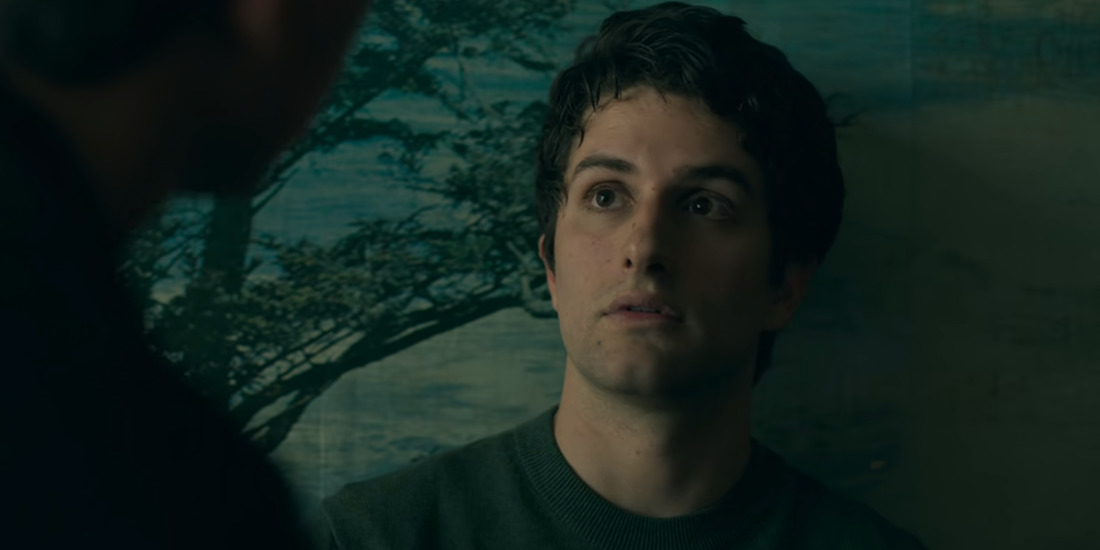I Don’t Expect Anyone to Believe Me: Is It Based on a True Story or a Book?
Netflix’s comedy thriller Spanish film, ‘I Don’t Expect Anyone to Believe Me,’ directed by Fernando Frias, follows a wild journey full of riveting twists and satirical narratives. Juan Pablo Villalobos, a Mexican writer on his way to Barcelona to study literature, finds himself running into serious trouble within the Spanish city. As his paths cross with a dangerous web of criminals, the young man’s…
Netflix’s comedy thriller Spanish film, ‘I Don’t Expect Anyone to Believe Me,’ directed by Fernando Frias, follows a wild journey full of riveting twists and satirical narratives. Juan Pablo Villalobos, a Mexican writer on his way to Barcelona to study literature, finds himself running into serious trouble within the Spanish city. As his paths cross with a dangerous web of criminals, the young man’s life turns upside down, effectively converting his life into a gangster thriller plot.
The film delves into the city’s cultural aspects through a humorous lens and highlights the more serious points of conversation without turning the perspective somber. Thus, the same results in an entertaining story that takes the viewers on a ride through several lively and authentic beats. As such, the question remains: how much of the story is actually based on real life?
Juan Pablo Villalobos’s Autofiction Novel
Although ‘I Don’t Expect Anyone to Believe Me’ (Originally titled ‘No Voy a Pedirle a Nadie Que me Crea’) is not explicitly based on a true story, it has some fascinating roots in reality. The film is an adaptation of the 2016 eponymous contemporary fiction novel by Juan Pablo Villalobos. The author wrote his story as a fictitious narrative yet created the protagonist, who shares his name with Villalobos, in his own image.

Villalobos moved to Barcelona in 2003 while pursuing a literary theory doctorate upon receiving an EU grant. Therefore, the similarities between the beginning of his novel’s protagonists’ journey, who travels to the same city through a scholarship, and his own remain evident. Still, it’s crucial to remember that Villalobos’ book ‘No Voy a Pedirle a Nadie Que me Crea’ is not an autobiography, despite the similarities that are shared between the author and his protagonist.
Instead, the story is an autofiction, wherein the author only serves as the narrator within fictional confinements. For the same reason, a more fabricated narrative takes over Juan Pablo Villalobos’ literary adventures once his fate becomes intertwined with criminals.
From then on, Villalobos’ story begins to encroach genre-bending waters and takes a more satirical and critical take on real-life issues. Perhaps for the same reason, the fictional Juan Pablo’s doctorate fittingly deals in humor in Latin American literature of the 20th century. Therefore, the story can be best described as a fictional narrative that deals with reality through a humorous lens.
Author Villalobos discussed the same in a conversation and noted the significance of the story’s exploration of his own lived experiences. The man wrote the book after living many years in Barcelona. Consequently, in his exploration of the city through his literary endeavor, the story ends up reflecting on the emigration processes in the academic world as well as violence as it persists in Mexico.
When Fernando Frias decided to adapt the author’s work into an on-screen spectacle, he knew he wanted to preserve the same themes alongside the novel’s humorous essence described as “acid parody” by critics over the years. “In my previous movies, the themes of culture shock are recurring. That’s why I became interested in the novel,” said Frias in an interview that originally occurred in Spanish. “I also thought I had a super light way of telling something serious.”
Therefore, under Frias’ masterful hands, Villalobos’ novel, partly inspired by reality as the author experienced it, took its cinematic form. The film remains faithful to the source material in a multitude of ways and similarly takes a critical look at social details. Nevertheless, the filmmaker and his co-screenwriter, Maria Camila Arias, naturally had to make some adjustments to convert the story from its literary pages to the screen. Still, in the process, the narrative never loses its’ dutiful reflection of reality and brings an equally thrilling tale to the audience.
Ultimately, ‘I Don’t Expect Anyone to Believe Me’ is not based on a true story. Nonetheless, the film, based on a fictional novel, draws from the same realities as its source material.